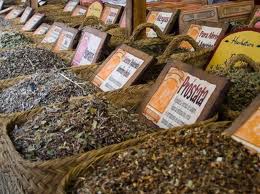
In this sense, health professionals, from clinicians to pharmacists, are bewildered by the demands of some clients or patients for “unconventional” drugs such as medicinal plants, for example.
These popular treatments that are alien to our culture might be harmless, at best, and even counterproductive at worst. But patients are often not understood or feel great reluctance to talk to a professional for this type of alternative medicine.
And we know the havoc caused by miscommunication or lack thereof in any field, and more so in medicine.
That is why it is so necessary to translate the medications or treatments used in other cultures so that health professionals, now more properly trained, acquire new knowledge and can know what the patients/clients are talking about and thus provide the service requested: HEALTH CARE.
I would like to mention here one example of intercultural understanding in an online publication that can be downloaded easily, called Guide to the Medicinal Plants of Maghreb, Alfonso del Villar José Ruiz de la Torre and Esther Melo Herráiz, Dr. Antonio Esteve Foundation.
The reason underlying this work was the influx of immigrants from North Africa (Maghreb) to Barcelona, Spain.
This book clearly highlights the need for intercultural understanding resulting from the phenomena of immigration:
“These people, especially in the early days of contact with our culture, that is, during that time from their arrival until their gradual adaptation to their new environment, they need a degree of understanding of their circumstances and their characteristics, from the indigenous population, which favors the process of acculturation and progressive integration. As it is not difficult to see, the second and subsequent generations of immigrants already present early a level of adaptation of language and habits in their new environment, even naturally, act as translators or mediators for their parents or grandparents (immigrants themselves ) and their new land. “
And central to patient care itself:
“This situation can cause difficulties for the physician to make a proper diagnosis if the patient already knows they’re dealing with a traditional remedy. To this we must add the possible occurrence of interactions between the different active principles prescribed by conventional medical and concomitant use of traditional remedies from other cultures.”
(Spanish version: https://www.trustedtranslations.com/las-diferencias-culturales-en-la-medicina-2010-12-07.html)





